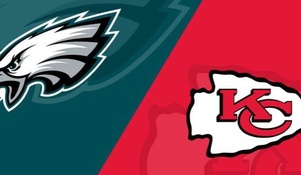Change Overtime to Improve the NFL
I received an email from NFL commissioner Roger Goodell. He wants to make the NFL better. He didn’t offer to resign, though.
Goodell spent the most time discussing pace of play. One idea is to eliminate the extra point-commercial-kickoff-commercial routine. He also mentioned centralizing instant replay, an idea that is overdue.
The letter didn’t mention any specific rule changes, but did say, “…there are a number of changes we are making to the mechanics and rules of the game…” The current overtime format should be one of them.
Think about this: We just witnessed the greatest Super Bowl comeback in NFL history as the New England Patriots came from 25 points down to defeat the Atlanta Falcons in overtime. But what if the Falcons had a possession after New England scored?
A potential game-winning drive trumped by decisive score. Sounds like the football equivalent of the North Carolina-Villanova 2016 national championship finish. The idea alone might be too much to take for some fans.
The fix is simple: both offenses get a possession even if a touchdown is scored on the opening drive.
In 2012 the NFL adjusted the sudden death format to give both offenses a possession if a team kicks a field goal on the first possession. But if a team scores a touchdown on the opening drive, the game is over. The difference doesn’t make sense.
Think about it from the Falcons point of view. Defense was Atlanta’s weakness. The unit was gassed from defending 91 plays before overtime. The star-studded offense overwhelmed New England’s defense at times. The Falcons’ offense would kill for one more shot at the Patriots’ D.
Put it another way: the winner of the coin toss would had won Super Bowl LI. A championship shouldn’t be determined by the flip of a coin.
Guaranteeing both teams an offensive possession following an opening touchdown would alter strategies, leading to decisions that would benefit the fans.
Pushing the extra point attempt to the 15 yard line is one of the best rule changes in years. Its influence was reflected in the number of two-point attempts in 2016 (105, up from 83 in 2015)) and the amount of excitement created.
Now imagine the excitement if a team goes for two in overtime of a Super Bowl. New England could had gone for two if they lost faith in K Stephen Gostkowski. Or they could put pressure on Atlanta to answer with eight points to stay alive.
Or Falcons head coach Dan Quinn, aggressive to the end, could go for the win instead of settling to knot things up a second time. The Patriots offense became unstoppable in the second half. Why take a chance and put the ball back in QB Tom Brady’s hands?
The Annual League Meeting takes place next weekend. The competition committee will propose reducing overtime to 10 minutes in the regular season. It may benefit teams that play later in the week on Thursday night, but it doesn’t ensure fairness.
Atlanta shouldn’t be alone in appealing for changing the overtime format. The Green Bay Packers can relate (See 2014 NFC Championship). The list will grow as long as the NFL keeps the current overtime format in place.
Questions? Comments? Send to [email protected]. Follow @NE_Arena on Twitter.






